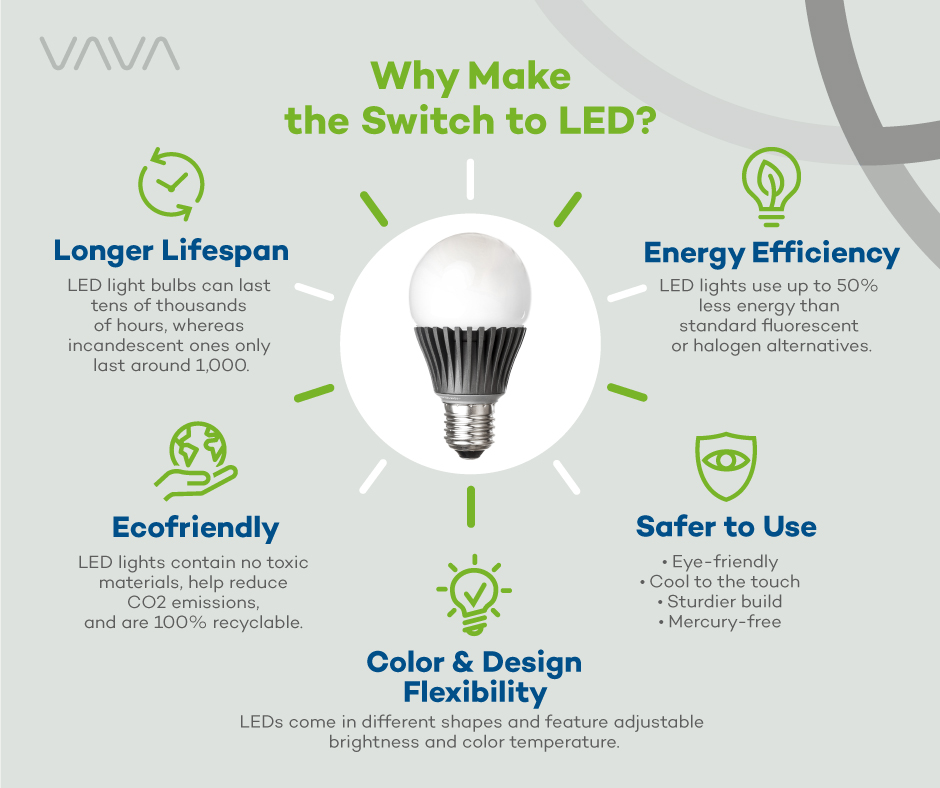
If you’re still using old-fashioned, incandescent light bulbs you’re doing neither you nor the environment a favor. While these might have been a revolutionary invention at the end of the 1800s when Edison filed a patent for the first practical light source of this kind, the more recent iterations of LED light outclass the standard fluorescent or halogen alternatives in every possible way.
Check out the top 5 reasons that make LED lights the most energy-conscious, environmentally friendly choice in terms of interior / exterior illumination and learn why you should make the switch to an all LED home.
1.Energy Efficiency
With increasing costs of electricity forecasted to grow by 2.6% in 2017, LED lighting technologies have a more and more relevant advantage with regard to energy efficiency. These use up to 50% less power than standard fluorescent or halogen alternatives.
The shape in which the LED bulbs are designed – hemispherically rather than spherically like the more traditional halogen ones – allows them to emit the light beam in the correct direction while minimizing light / energy waste.
In terms of the actual figures, LEDs utilize 80% of the energy they receive to generate light while only 20% of this energy is wasted during the process.
LED lighting options provide the same amount of light as fluorescent or halogen bulbs while utilizing much less energy.
2.Longer Lifespan
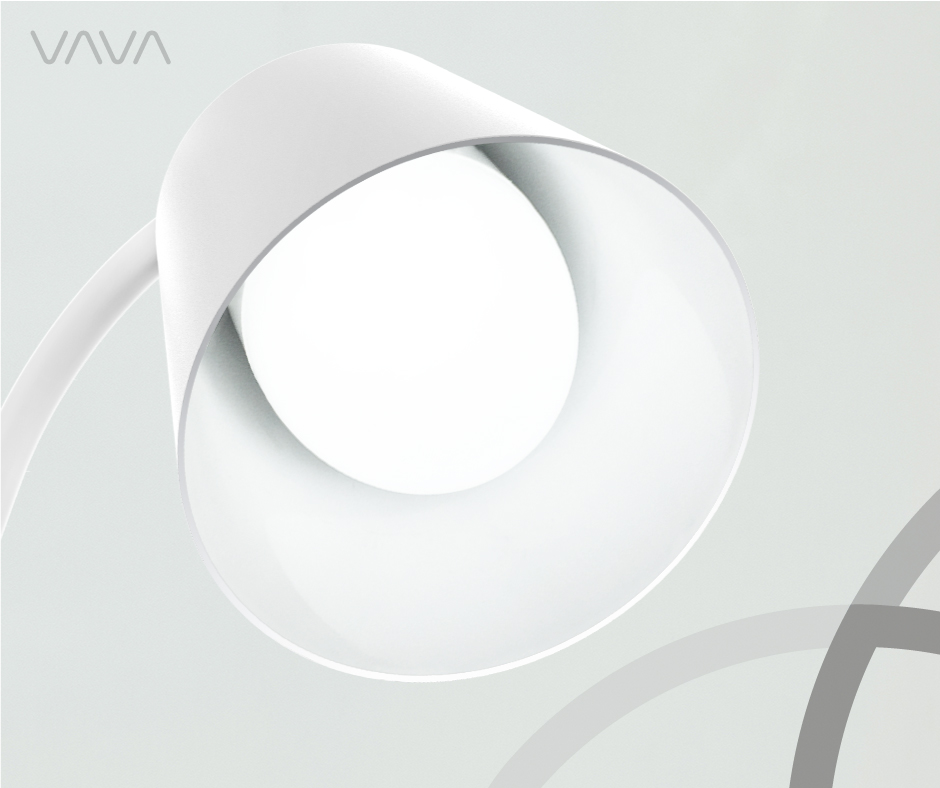
While the lifetime expectancy of the standard incandescent light bulbs is only about 1,000 hours of usage, LED technology has an average lifespan of up to 50,000 hours.
This is due to the fact that LEDs don’t have internal filaments that might unexpectedly fail, but come with a solid-state lighting that’s designed for longer use.
As such, purchasing a LED light bulb is more of an investment, knowing that this will last for years (if not even decades) and eliminate the added cost required for maintenance and replacement workloads.
3.Ecofriendly
In addition to the valuable differences in terms of energy efficiency and lifespan mentioned above, LED lighting is the greenest form of illumination by being entirely toxic-free.
Unlike CFLs (compact fluorescent lamps) and other energy efficient lighting options that contain mercury and require you to dispose of them in specialized locations, LEDs do not contain any harmful, toxic component. While this helps prevent any potential health harm, it also makes the LED panels 100% recyclable and easier to dispose.
Before your LED light does need to be disposed though, this will have served for a considerable amount of time. Thanks to its long-lasting usage expectancy, one LED light bulb can save material and production of up to 25 incandescent bulbs. Ultimately, another advantage for the environment is measured by the reduced emission of CO2. Where 30 incandescent light bulbs release about 2,500 kg of CO2, sulfur oxide, and nuclear waste per year, LEDs only produce approximately 200 kg annually.
4.Color & Design Flexibility
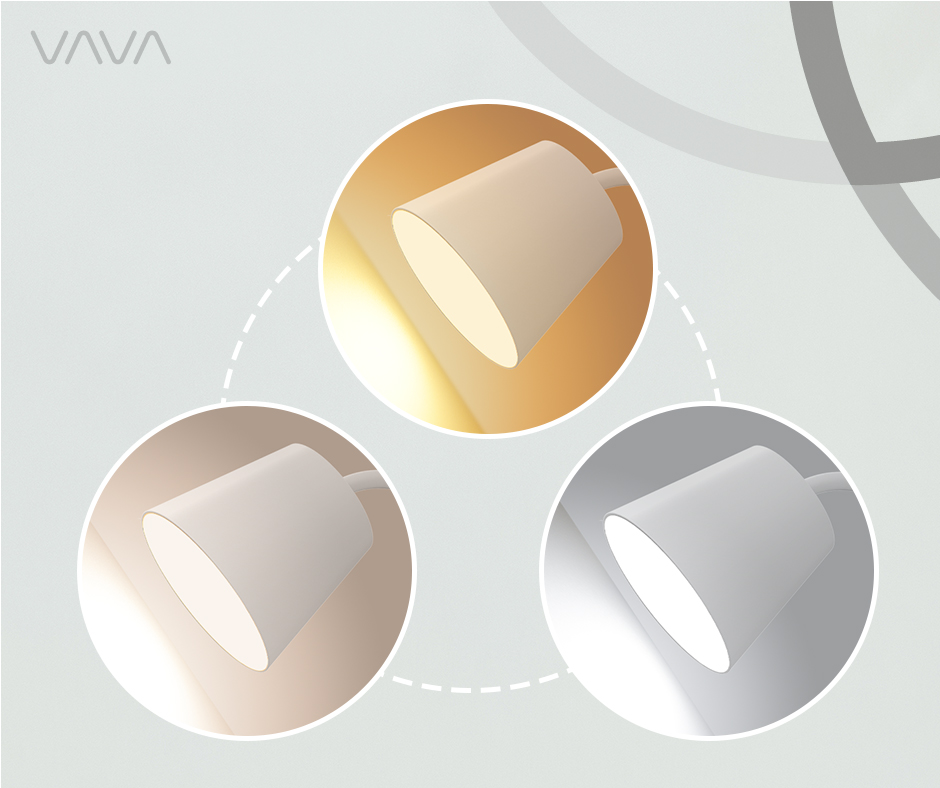
LED lights come in an infinite variety of shapes and designs and this makes them a highly versatile solution for both residential and commercial illumination.
While the multiple shapes and sizes allow the LED panels to suit placements where the more traditional fluorescent or halogen bulbs would not fit, their enhanced control flexibility enables you to create some remarkable lighting effects.
LEDs can be adjusted in terms of color temperature, brightness, and even heat distribution. It’s possible to fully control the LED illumination system via built-in timers, remotes, or even your home WLAN.
Apart from an esthetical benefit, variable color temperatures and brightness intensities have a fundamental role in the so-called LED mood illumination. This is already being used in airplanes to allow for more natural sleep patterns, in classrooms to boost the students’ awareness and learning abilities, and more.
5.Safer to Use
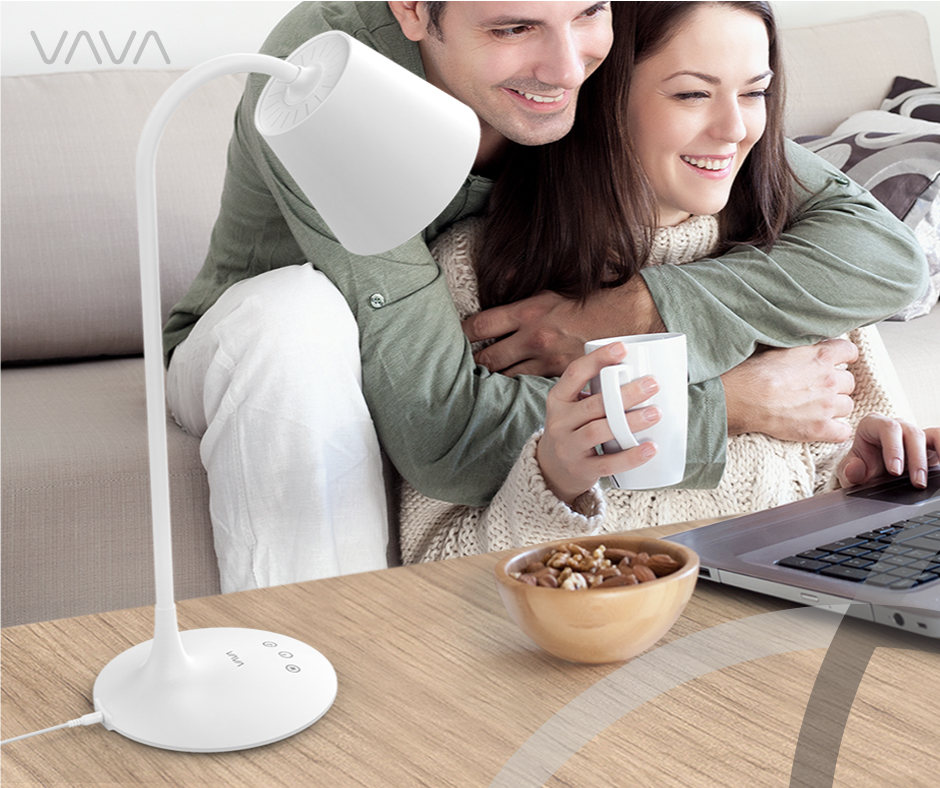
Some of the aforementioned features in addition to some extra ones make LED light bulbs an overall safer type of illumination.
Eye-Friendly
By emitting a more uniform, stable lighting that won’t flicker or randomly vary in intensity, LED panels provide a softer, yet efficient light beam that won’t hurt the eyes.
A consequential benefit coming from a reduced eyestrain is that LED bulbs can safely be used for longer, whether the extra light is needed to concentrate at work, to study, or simply to enjoy a good read.
Cool to the Touch
LED panels distribute the heat uniformly and never overheat. While being essential to their longer longevity, this feature makes them safer to use in the way that even kids can securely handle a LED night light, desk lamp, etc. without fearing of getting sore scalds and burns.
Sturdier Build
LED lighting can take a beating. As opposed to both CFLs and their incandescent predecessors that would shatter or crack from bumps and vibrations, LEDs are simply more durable.
Their rugged housing allows them to be installed in a wider range of locations, indoors as well as outdoors where traditional lighting may suffer damage caused by the elements.
Mercury-Free
While previously mentioned in connection to the fully recyclability of the LED lights, the lack of mercury makes this type of illumination safer for the users too.
A toxic-free composition enables you to let your kid sleep with his LED baby night light without worrying that this may crack and expose your little one to contaminating components.
Learn more about baby night lights by reading our blog Why Your Baby Needs a Night Light: A Guide to Better Sleeping.
Coming as an additional bonus, should a LED panel break, there won’t be any hazardous mercury mess to clean up and dispose.
Whether it is to save some extra money on the power bill or as a result of your environmentally friendly consciousness, making the switch to a fully LED-powered habitation is the kind of decision you won’t regret and both Mother Nature and your dear ones will thank you for that.

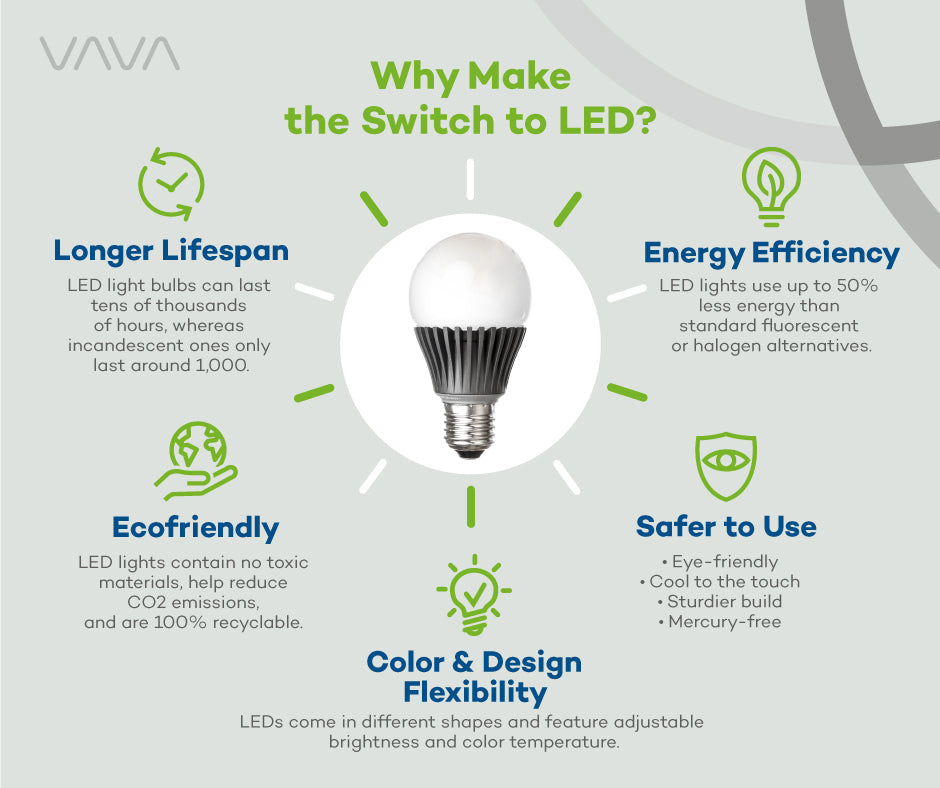
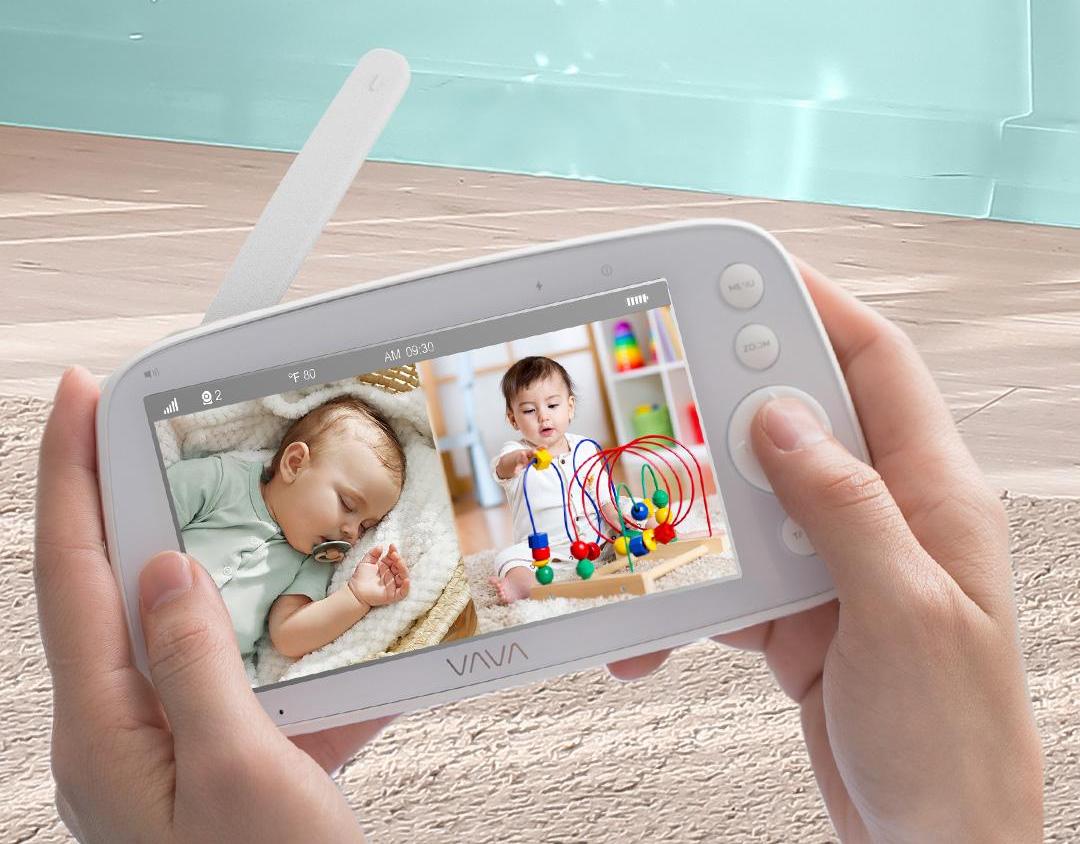

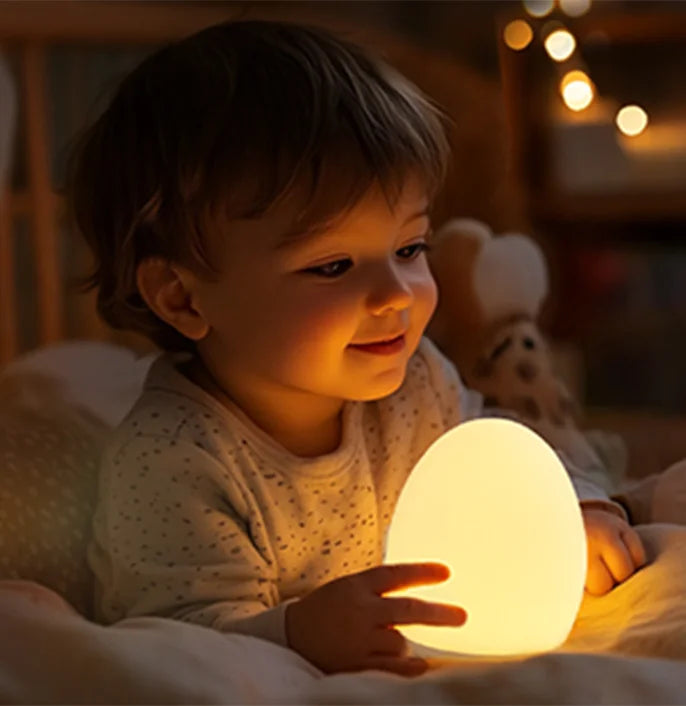
Share: